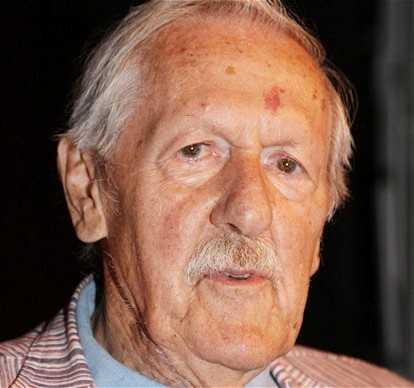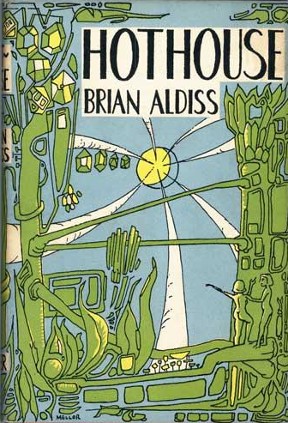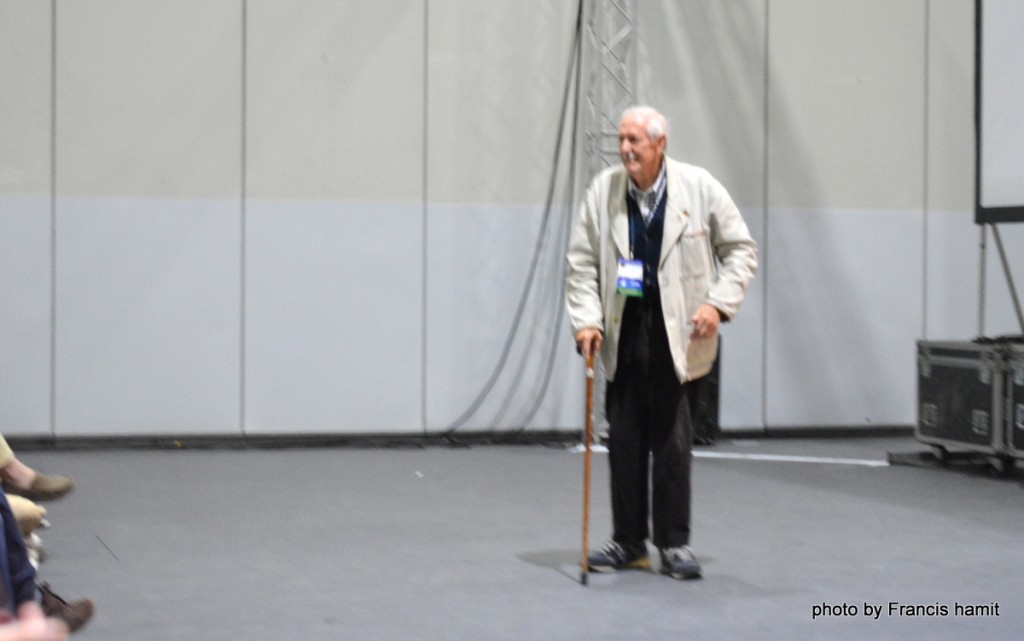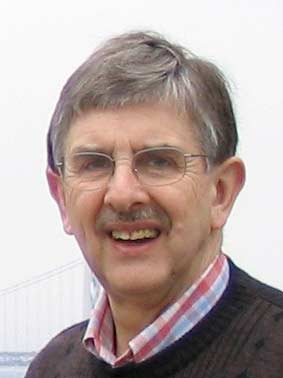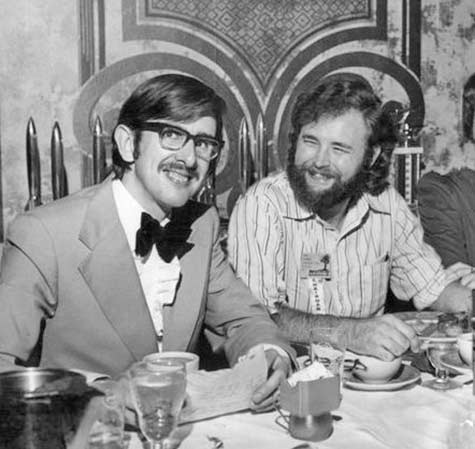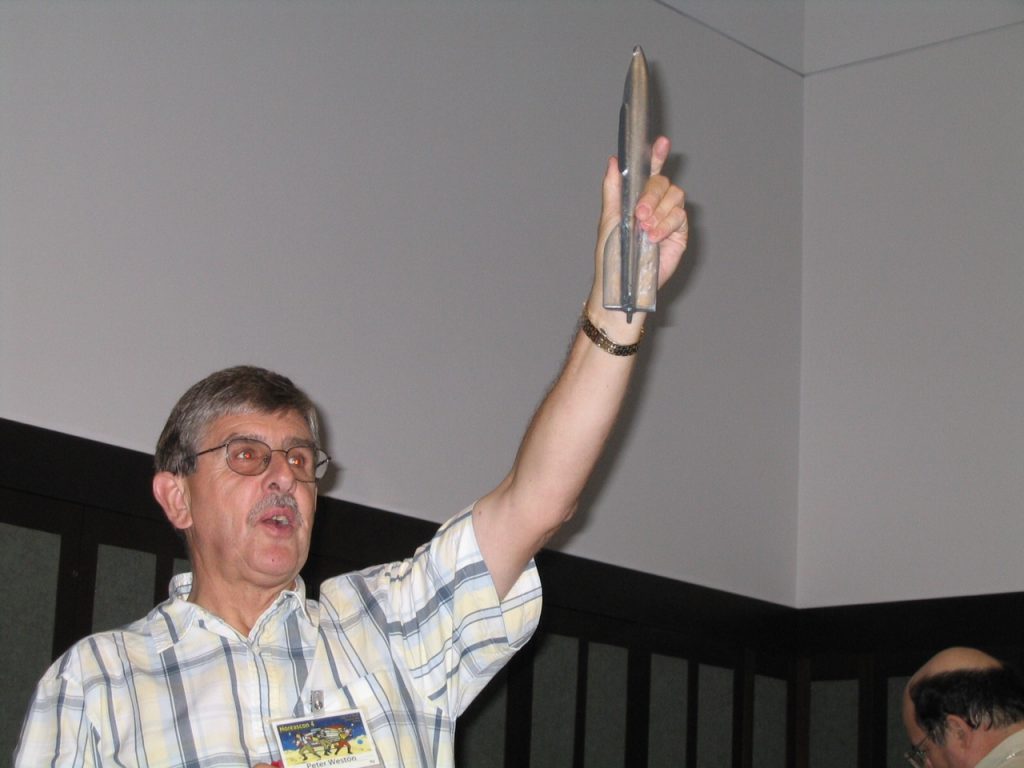(1) COMIC BOOK LEGAL DEFENSE FUND LEADERSHIP TURNOVER. The Comic Book Legal Defense Fund announced June 22 that they had accepted the resignation of Charles Brownstein as Executive Director, effective immediately. According to Publishers Weekly, Brownstein’s resignation comes after the resurfacing of allegations of sexual assault brought against him in 2006. An account of the situation and its aftermath was reported in the Comics Journal in 2006.
The CBLDF subsequently posted this update:
First and foremost, the CBLDF is grateful that Kris Simon has come forward. We also want to recognize Taki Soma for what she endured and for bringing this to light. Both have our full support. We are releasing Shy Allot from the NDA she signed in 2010 when she left the organization so that her story can also be heard.
CBLDF’s Board is undergoing a complete review of management practices and where we have fallen short. We are examining our mission to ensure it meets modern industry needs, and will do so with input from our full-time staff, expert third parties, and the comics and manga community.
And on June 29, more retirements/resignations followed.
The CBLDF announced today that Paul Levitz is retiring from our Board of Directors. In addition, the Board has accepted the resignations of Katherine Keller and Jeff Abraham.
We respect the decisions that Paul, Katherine and Jeff have made to leave the Board. We realize it will be a long path to earning back the trust of our members, supporters and the industry. We recognize that it’s been our inability to react, or act at all, that’s been the cause of pain in our community.
Even last week, when we took the necessary action in accepting Charles’s resignation, our communications were stilted and clumsy. To everyone who has come forward, we haven’t done justice to your bravery and we are truly sorry. We vow to be better….
(2) VIRTUALLY THERE. Locus Online has posted a highly informative report about the 2020 SFWA Nebula Conference
The 2020 SFWA Nebula Conference morphed mid-COVID from an in-person conference into an impressive online event, held May 29-31, 2020. There were 808 members from 33 countries, a record, up from 2019’s record-breaking 475 registered members.
(3) LISTEN IN ON FANHISTORY. Fanac.org has posted the second segment of its audio recording of the “Fans Into Pros” panel at IguanCon II, the 36th Worldcon, held in Phoenix, Arizona in 1978. (The link to Part I is here.) The participants are Guest of Honor Harlan Ellison, Robert Silverberg, Terry Carr, Richard Lupoff and Ted White.
This audio recording (enhanced with many images) is Part 2 of that panel. More serious than part 1, this segment talks about becoming a writer, and provides straightforward, candid insights about selling in the field. There’s less byplay but lots of good discussion. Note two things – the recording does not go to the end of the panel but stops abruptly (source material ends), and there is a section where members of the audience are speaking and you can’t hear them on the recording.
Please be patient – the responses from the panel are worth hearing. This recording courtesy of IguanaCon chairman Tim Kyger.
(4) BRITAIN IS FINE. Rob Hansen has added a section about the 1979 Worldcon bid to his website THEN, with publications, photos, etc. Rob says, “I’ll eventually get around to tackling the con itself, but in the meantime here’s the tale of how it came to be.”
The story of how the idea of holding a UK Worldcon in the 1970s emerged, and how things came together and the bid then evolved, is worthy of its own entry. The bid also had its own series of progress reports independent of the eventual convention, all of which are included here.
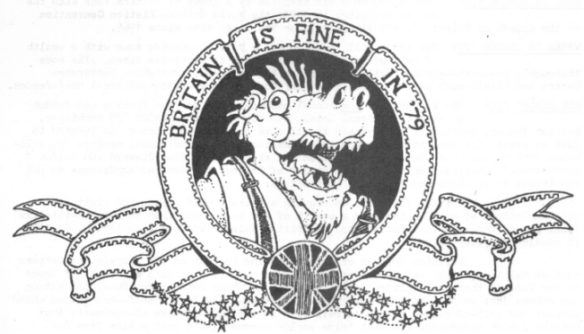
(5) NOBODY MUST GET STONED. The recent launch of Avengers: Infinity War on Disney+ was promoted by a short video on Marvel’s Instagram account highlighting the Marvel Cinematic Universe’s six Infinity Stones.
(6) HEARD THAT SOMEWHERE BEFORE. A.V. Club will point you to the video: “It’s some kind of supercut of every time someone says “some kind of” on Star Trek”.
Pretty much everyone has some kind of vocal tic, some sort of repeated phrase or word they use without necessarily even realizing it in their day-to-day conversations. Pointing it out in each other is generally considered an asshat thing to do, but that doesn’t change how damn annoying it can be for all of us. On that note, here’s some sort of supercut of all 214 times someone says “some sort of” or “some kind of” on some sort of show called Star Trek: The Next Generation.
(7) MEDIA BIRTHDAYS.
- July 1, 1955 — Robby the Robot was born. Or so claims the studio, Metro-Goldwyn-Mayer, that would release Forbidden Planet where he had his first screen appearance on March 4, 1956. He would go to be part of a number of series including Lost in Space, The Addams Family, The Twilight Zone and Holmes & Yo-Yo to name but a few of his appearances. His latest appearance was on The Big Bang Theory with other movie props in “The Misinterpretation Agitation” episode. (CE)
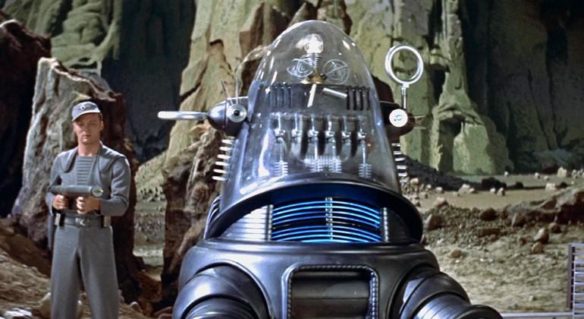
- July 1, 1984 — William Gibson’s Neuromancer was published. It would win a Hugo for Best Novel at Aussiecon II. It was the first novel to win the Nebula Award, the Philip K. Dick Award, and the Hugo Award for a paperback original. The novel opens with the new famous line of “The sky above the port was the color of television, tuned to a dead channel.” Deadpool director Tim Miller was chosen three years ago to direct a live-action film adaptation, and Neuromancer the Opera was written but a quarter of a century later has not been staged.
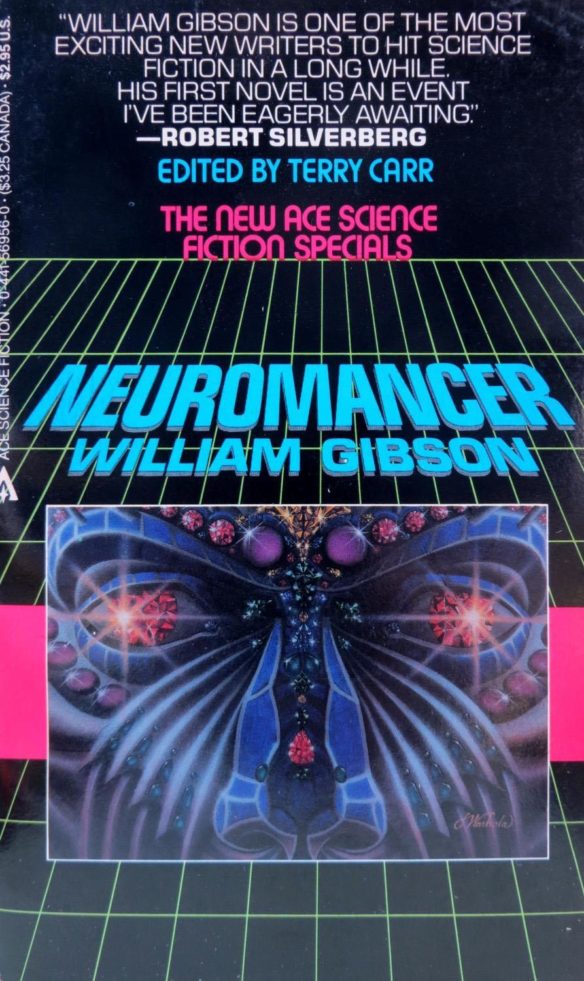
(8) TODAY’S BIRTHDAYS.
[Compiled by Cat Eldridge and John Hertz.]
- Born July 1, 1891 — Otis Adelbert Kline. Early pulp writer and and literary agent whose great claim to fame was a possibly apocryphal feud with fellow author Edgar Rice Burroughs, in which he supposedly raised the latter’s anger by producing close imitations of Burroughs’s Mars novels. Wollheim and Moskowitz believed in the feud theory, Richard Lupoff wrote an articl debunking the idea. (Died 1945.) (CE)
- Born July 1, 1923 – Jean Hougron. Indochina (as it then was) 1947-1951; a score of novels. Two for us, The Sign of the Dog, translated into German, Italian, Portuguese; and Naguen, winning the Grand Prix de la Science-Fiction. Grand Prix du roman de l’Academie française for Death and Fraud, no. 4 in his series The Indochina Night. (Died 2001) [JH]
- Born July 1, 1934 — Jean Marsh, 86. She was married to Jon Pertwee but it was before either were involved in Dr. Who. She first appeared alongside The First Doctor in “The Crusade” as Lady Joanna, the sister of Richard I (The Lionheart). She returned later that year as companion Sara Kingdom in “The Daleks’ Master Plan”. And she’d return yet again during the time of the Seventh Doctor in “Battlefield” as Morgana Le Fay. She’s also in Unearthly Stranger Dark Places, Return to Oz, Willow as Queen Bavmorda and The Changeling. (CE)
- Born July 1, 1935 — David Prowse, 85. The physical embodiment of Darth Vader in the original Star Wars trilogy. Ok, it’s been a very long time since I saw Casino Royale but what was Frankenstein’s Creation doing there, the character he played in his first ever role? That he played that role in The Horror of Frankenstein and Frankenstein and the Monster from Hell, Hammer Films a few later surprises me not. He shows up in Gilliam’s Jabberwocky according to IMDB as Red Herring and Black Knights (and no I’ve no idea what that means). Finally, he’s the executioner in The People That Time Forgot, a film that’s very loosely based off of several Burroughs novels. (CE)
- Born July 1, 1942 – rich brown. No capital letters in his name. By the mid-1960s known and knowledgeable enough to publish, with Arnie Katz and Mike McInerney, the fanzine Focal Point, revived with AK in the early 1970s. Also with AK the 3rd (1971) ed’n of The Enchanted Duplicator (1994 ed’n here) i.e. not the protagonist of “Double, Double, Toil and Trouble” but producing one’s fanzine, once and for some still the heart of fan activity; also with AK The Incompleat Terry Carr (a somewhat more compleat ed’n 1988 by Jerry Kaufman); contributed a study of fanspeak to Joe Sanders’ Science Fiction Fandom, eventually brought into Fancyclopedia 3. Self-depreciatingly said “I’m everyone’s rich brother” and “I’m in The Lord of the Rings. The Ents have my skin. They have rich brown skin.” (Died 2006) [JH]
- Born July 1, 1952 – Mary Kay Kare , 68. Edited Red Dust, clubzine of the Norman, Oklahoma, SF Society; then Seattle, San Jose. Co-chaired Potlatch 19 (literary SF con). Innocently going overseas to Corflu 27 she found herself Guest of Honor – at Corflu this is determined by drawing names from a hat. Hugo Awards Administrator at Denvention 3 the 66th Worldcon; photo here. Widow of the extraordinary Jordin Kare. [JH]
- Born July 1, 1959 – Leah Zeldes Smith, 61. Can be found under both maiden and married names; husband, Dick Smith. Served on boards of Ann Arbor SF Ass’n, Nat’l Fantasy Fan Fed’n. Co-founded Michigan Soc. of (Hapless) Amateur Publishers – opinions differ on whether the H is for Hapless or silent as in bheer; anyhow, MISHAP. Half a dozen stories in Mike Resnick anthologies. Fanzine Stet (with Dick) 3-time Hugo finalist. Fan Guest of Honor at Corflu 4. Down Under Fan Fund delegate (with Dick), attended Swancon 18. Chaired Operacon. More here. [JH]
- Born July 1, 1964 — Charles Coleman Finlay, 56. His first story, “Footnotes”, was published in 2001 in The Magazine of Fantasy & Science Fiction where many of his other stories were published, and which he has edited for past six years. The Traitor to the Crown series is his best-known work. (CE)
- Born July 1, 1965 – Kevin Maroney, 55. Long-time managing editor, now publisher, of the New York Review of SF, 14-time Hugo finalist. Guest of Honor at Detcon the 11th NASFiC (North America SF Con, held since 1975 when the Worldcon is overseas). He says “Science fiction valorizes people who Know Things.” Dilettante in the old sense. [JH]
- Born July 1, 1976 – Ketty Steward, 44. Author, critic, proofreader. Two dozen stories; collection, Interrupted Connections (in French, i.e. Connexions interrompoues; KS lives in Martinique). “HeLa Is Here” in English here. Two special issues of Galaxies (in French) devoted to Africa. Genre-mixing autobiographical novel, Black & White (Noir et blanc). Degrees in applied mathematics, social sciences, labor science. Student of Afrocyberfeminism. [JH]
- Born July 1, 1981 — Genevieve Valentine, 39. Author of the superb Persona novel, and also she scripted a Catwoman series, working with artists Garry Brown and David Messina. Her first novel, Mechanique: A tale of the Circus Tresaulti, won the Crawford Award for a first fantasy novel. She also scripted a run of Xena: Warrior Princess. (CE)
(9) IN SPACE, NO ONE CAN SMELL YOU SCREAM. According to CNN, “This is what space smells like”.
If you’ve ever wondered what space smells like, a new perfume may answer that for you. A kickstarter was recently launched for a new fragrance called Eau de Space to bring the smell of outer space back down to Earth.
The fragrance was developed by Steve Pearce, according to Eau de Space product manager Matt Richmond. Pearce is a chemist and the founder of Omega Ingredients, a company focused on the “creation of the highest quality, provenance driven, natural flavours and ingredients for the food and beverage industry,” its website says.

(10) IN BOOKS TO COME. Andrew Liptak told readers where to find his monthly Reading List:
As some of you know from June, Polygon has decided to discontinue the list on their site for the foreseeable future — one small casualty from COVID. Accordingly, I’ve shifted the list over to my newsletter, Reading List.
This newsletter is designed as a step-back from the day-to-day news of the SF/F world, with a couple of different types of letters. Free ones have a regular set of content: I’m aiming for a book review and/or short piece of commentary, along with a list of notable long-read articles and pieces of note, as well as a roundup of book recommendations. I’m also using it as a place to conduct longer-form interviews and this book list. This has a growing audience, with a solid reading and open rate: 50-58%, depending on the post.
The paid version (Reading List+) is something I just launched, and it features longer or in-depth commentary or reported feature — the first was about J.K. Rowling and Richard K. Morgan’s comments online. The next is set to go out this week, about the legacy of Michael Crichton’s name. This has a smaller audience, but with a much higher open and reading rate (~80%). Future plans here include podcasting (to be called Transfer Orbit), with one long-form interview set to debut later this month, as well as a handful of other posts, ranging from essays about writing, an in-depth feature on a military war game, and more.
(11) YOUR CHAIRS ARE READY. Episode 30 of the Two Chairs Talking podcast is out: “The many trouser-legs of time”. Perry Middlemiss and David Grigg are joined by Dr. Lucy Sussex to talk about alternate history novels. In particular, they discuss those alternate timelines in which the Axis powers won the Second World War. (Did someone forget to punch the Nazis?)
- Swastika Night by Katharine Burdekin
- Small Change trilogy by Jo Walton
- Dominion by C. J. Sansom
- The Iron Dream by Norman Spinrad
- SS-GB by Len Deighton
- Fatherland by Robert Harris
- The Plot Against America by Philip Roth
- The Man in the High Castle by Philip K. Dick
(12) AT THE CORE. In Nature, astronomers claim “Core of a gas planet seen for the first time” says the BBC.
Astronomers have found a previously unseen type of object circling a distant star.
It could be the core of a gas world like Jupiter, offering an unprecedented glimpse inside one of these giant planets.
Giant planets like Jupiter and Saturn have a solid planetary core beneath a thick envelope of hydrogen and helium gas.
But no-one has previously been able to see what these solid cores are like.
Now, a team of astronomers has discovered what they think are the rocky innards of a giant planet that’s missing its thick atmosphere. Their findings have been published in the journal Nature.
(13) PLANTING THE FLAG. This is a wonderful GIF — “NASA if it had the same budget as the US Military”. (I won’t embed it here, because GIFs in the Scroll drive some of you to distraction. Not that I’ll never ever do it, you understand…)
(14) YA GOTTA BELIEVE. BBC reports:“Tesla overtakes Toyota to become world’s most valuable car maker”.
Tesla has become the world’s most valuable carmaker, overtaking Japan’s Toyota, after its stock hit a record high.
Shares in the electric carmaker hit a record $1,134 on Wednesday morning, before falling back, leaving it with a market value of $209.47bn (£165bn).
That is roughly $4bn more than Toyota’s current stock market value.
However, Toyota sold around 30 times more cars last year and its revenues were more than 10 times higher.
Shares in Tesla have risen more than 160% since the start of 2020, as investors feel more confident about the future of electric vehicles.
(15) SPACE JAM. A 2017 NASA video called “Space Station Fisheye Fly-Through 4K” is a really good look at the International Space Station with some smooth jazz.
(16) BORED NOW. “Crucible: Amazon pulls ‘boring’ big-budget video game”.
Amazon has pulled its first major game release, putting it back into a testing phase after poor feedback from players.
Free-to-play shooter Crucible is now being put back into “closed beta” – a pre-release stage with a limited number of players.
Current players will be part of the beta, but new players will be unable to download the game without an invite.
Amazon said it had listened to player feedback and would “continue to make the game better”.
In May, when the game was about to be released, Amazon Games vice-president Mike Frazzini told the BBC the company wanted “to make games that resonate with a very large audience of players”.
(17) VIDEO OF THE DAY. What?!
Dippin’ Dots—they’re an amusement park, zoo, aquarium and overall summertime staple. The mini balls of ice cream that melt in your mouth are also a childhood favorite. But where did the “ice cream of the future” come from? The answer has a little something to do with cow feed.
[Thanks to Andrew Liptak, John King Tarpinian, Chip Hitchcock, Andrew Porter, JJ, Cat Eldridge, John Hertz, Mike Kennedy, Martin Morse Wooster, and Michael Toman for some of these stories. Title credit goes to File 770 contributing editor of the day Soon Lee.]

